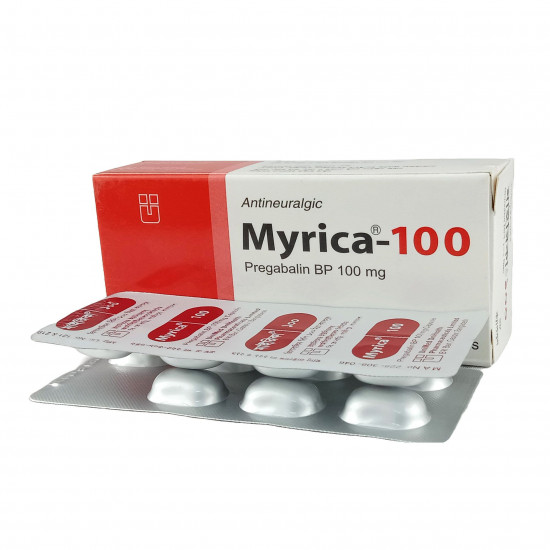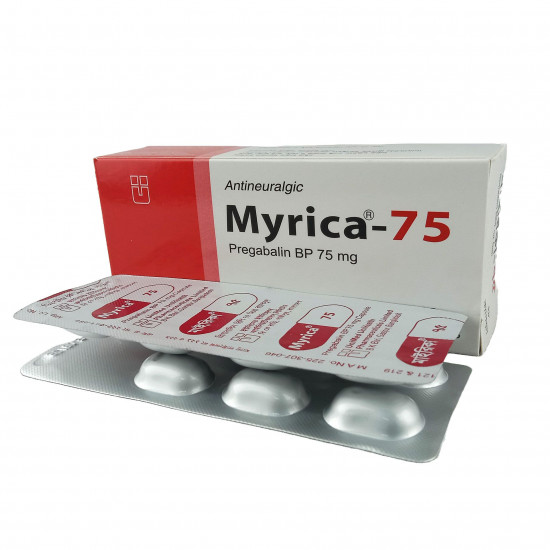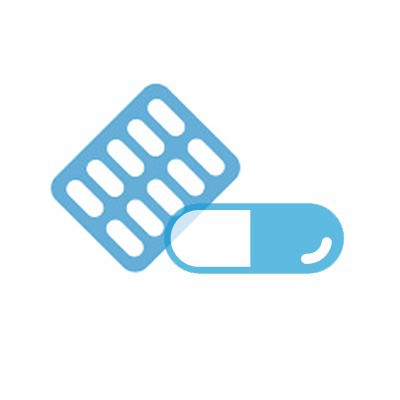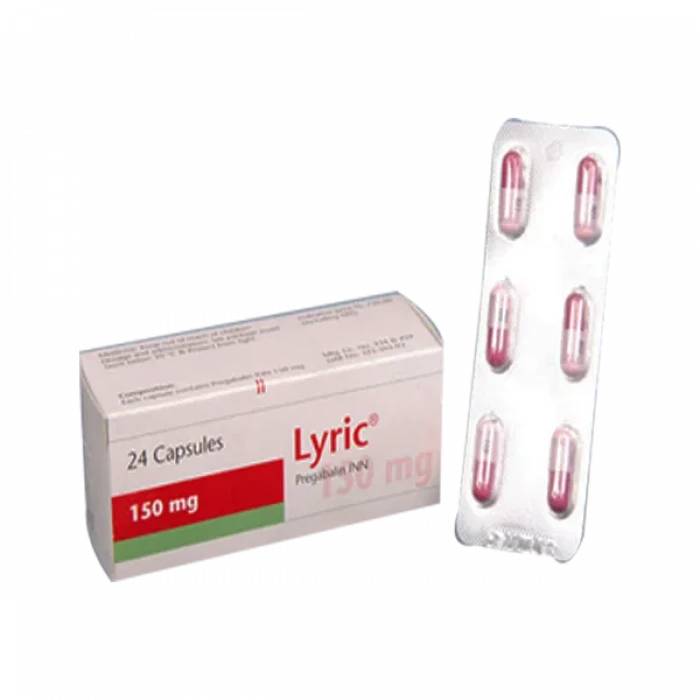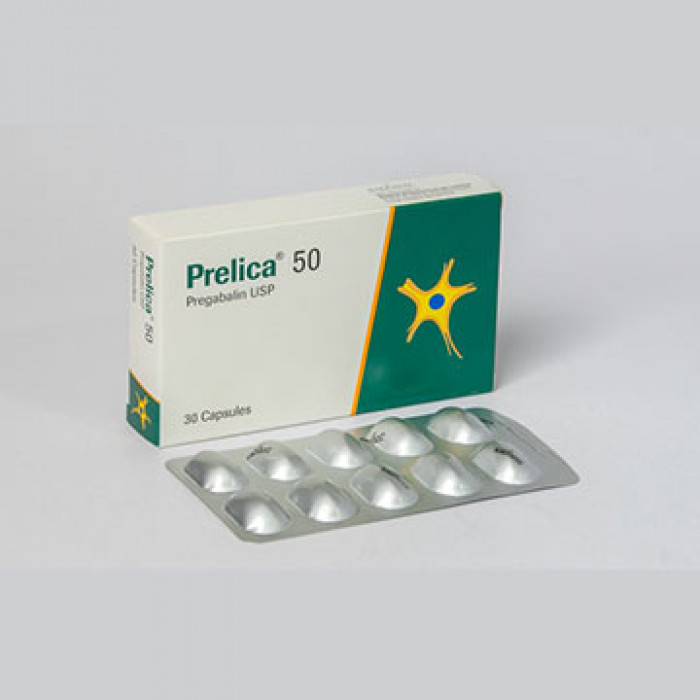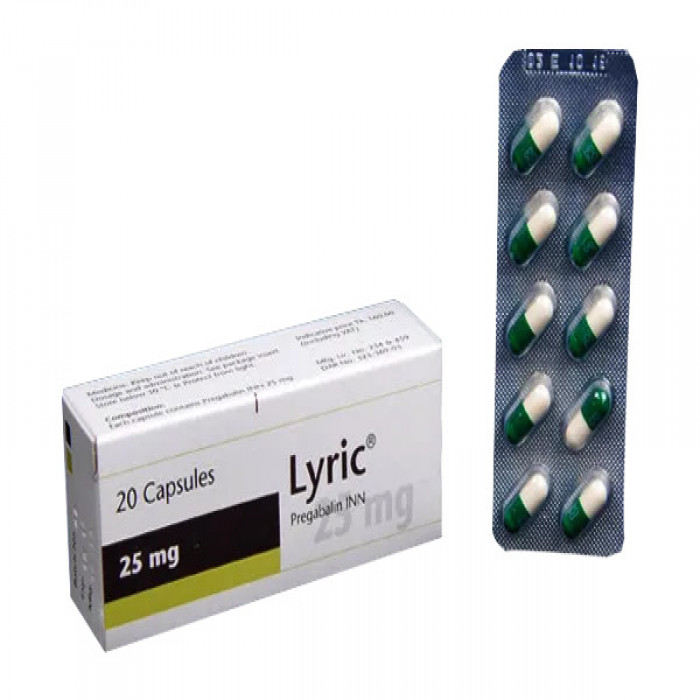
✔ 100% Authentic Product
👁️ Currently Viewing 1804
Pregaben 75mg (30pcs Box)
Generic Name: Pregabalin,
Manufacturer: Incepta Pharmaceuticals Ltd.
Discount
Price: ৳ 513
MRP:
৳
540
5%
Off

100% Genuine Products, Guaranteed

Safe & Secure Payments, Always

Fast, Secure & Efficient Delivery

Proper Packaging
 Cash on Delivery - All over Bangladesh
Cash on Delivery - All over Bangladesh Regular Delivery - 12-24 Hours, Dhaka City* Charge Tk.39-59
Regular Delivery - 12-24 Hours, Dhaka City* Charge Tk.39-59 Regular Delivery - 24-48 Hours, Other Cities* Charge Tk.99-110
Regular Delivery - 24-48 Hours, Other Cities* Charge Tk.99-110
🌙 রমযান অফার 🌙
 ফ্রি ডেলিভারিঃ - ৭৯৯ টাকা+ অর্ডারে, ঢাকা
শহরে
ফ্রি ডেলিভারিঃ - ৭৯৯ টাকা+ অর্ডারে, ঢাকা
শহরে ফ্রি ডেলিভারিঃ - ২৭৯৯ টাকা+ অর্ডারে, ঢাকার
বাহিরে
ফ্রি ডেলিভারিঃ - ২৭৯৯ টাকা+ অর্ডারে, ঢাকার
বাহিরে
📲 মোবাইল অ্যাপ অর্ডারে সাশ্রয় বেশী
-
Google Play Store থেকে ডাউনলোড
-
Apple Store থেকে ডাউনলোড
100% Genuine Products, Guaranteed
Safe & Secure Payments, Always
Fast, Secure & Efficient Delivery
Proper Packaging
 Cash on Delivery - All over Bangladesh
Cash on Delivery - All over Bangladesh Regular Delivery - 12-24 Hours, Dhaka City* Charge Tk.39-59
Regular Delivery - 12-24 Hours, Dhaka City* Charge Tk.39-59 Regular Delivery - 24-48 Hours, Other Cities* Charge Tk.99-110
Regular Delivery - 24-48 Hours, Other Cities* Charge Tk.99-110 ফ্রি ডেলিভারিঃ - ৭৯৯ টাকা+ অর্ডারে, ঢাকা
শহরে
ফ্রি ডেলিভারিঃ - ৭৯৯ টাকা+ অর্ডারে, ঢাকা
শহরে ফ্রি ডেলিভারিঃ - ২৭৯৯ টাকা+ অর্ডারে, ঢাকার
বাহিরে
ফ্রি ডেলিভারিঃ - ২৭৯৯ টাকা+ অর্ডারে, ঢাকার
বাহিরে- Google Play Store থেকে ডাউনলোড
- Apple Store থেকে ডাউনলোড
🌙 রমযান অফার 🌙
📲 মোবাইল অ্যাপ অর্ডারে সাশ্রয় বেশী
✅ Description:
Indications
Pregabalin is indicated for:
Management of neuropathic pain associated with diabetic peripheral neuropathy
Treatment of postoperative neuralgia
Adjunctive treatment of adult patients with partial seizures
Management of fibromyalgia
Pain neuropathic associated with spinal cord injury.
Pharmacology
Pregabalin is a structural derivative of the inhibitory neurotransmitter gamma-amino butyric acid (GABA). It does not bind directly to GABAA, GABAB receptors, or benzodiazepines. Pregabalin binds with high affinity to the alpha 2delta site (an accessory subunit of voltage-evaluated calcium channels) in tissues of the central nervous system. The oral bioavailability of pregabalin is ≥90% and is independent of dose. It is eliminated from the systemic circulation mainly by renal excretion as an unchanged drug with a mean half-life of 6.3 hours in subjects with normal renal function.
Dosage & Administration
Neuropathic Pain Associated with Diabetic Peripheral Neuropathy: The maximum recommended dose of pregabalin is 100 mg three times daily (300 mg/day) in patients with creatinine clearance of at least 60 ml / min. . The dose should start at 50 mg three times a day (150 mg/day) and may be increased to 300 mg/day in 1 week depending on effectiveness and tolerability.
Back neuralgia: The recommended dose of pregabalin is 75 to 150 mg twice daily, or 50 to 100 mg three times daily (150 to 300 mg/day) in patients with low creatinine clearance. at least 60 mL/min. The dose should start at 75 mg twice a day or 50 mg three times a day (150 mg/day) and can be increased to 300 mg/day in 1 week depending on effectiveness and tolerability.
Add-on therapy for adult patients with partial epilepsy: In general, it is recommended that patients start a total daily dose of no more than 150 mg/day (75 mg twice daily, 50 mg/day, or 50 mg/day). day). mg three times a day). Depending on individual patient response and tolerability, the dose may be increased up to a maximum dose of 600 mg/day.
Management of fibromyalgia: The recommended dose of pregabalin for fibromyalgia is 300-450 mg/day. Dosage should start at 75 mg twice/day (150 mg/day) and may be increased to 150 mg twice/day (300 mg/day) for 1 week depending on efficacy and tolerability. .
Neuropathic pain associated with spinal cord injury: The recommended dose range is 150-600 mg/day. The recommended starting dose is 75 mg twice/day (150 mg/day). The dose can be increased to 150 mg twice a day (300 mg/day) in 1 week depending on the effectiveness and tolerance. Pregabalin capsules can be taken without regard to meals.
Interaction
There are no significant interactions between pregabalin and other anti-epileptic drugs and oral contraceptives. Pregabalin may potentiate the effects of ethanol and lorazepam.
Contraindications
Pregabalin is contraindicated in patients with known hypersensitivity to Pregabalin or any of its ingredients.
Side Effects
The most common side effects are dizziness, drowsiness, dry mouth, edema, blurred vision, weight gain, and unusual thoughts.
Pregnancy & Lactation
Pregabalin's pregnancy category is C. It should therefore only be used if the potential benefit outweighs the possible risk to the fetus. Pregabalin can be secreted into breast milk like other drugs and should therefore be administered to a nursing woman only if the benefits clearly outweigh the risks.
Precautions & Warnings
Stopping pregabalin without reducing the dose may cause insomnia, nausea, headache, and diarrhea. Therefore, it should be gradually reduced for at least 1 week, without stopping abruptly. Creatinine kinase may be elevated during treatment with pregabalin. The drug should be stopped promptly if myopathy is diagnosed or suspected or if creatinine kinase is markedly elevated.
Storage Conditions
Keep in a cool & dry place (below 30° C), protected from light & moisture. Keep out of the reach of children.
⚠️Disclaimer:
At ePharma, we’re committed to providing accurate and accessible health information. However, all content is intended for informational purposes only and should not replace medical advice from a qualified physician. Please consult your healthcare provider for personalized guidance. We aim to support, not substitute, the doctor-patient relationship.




